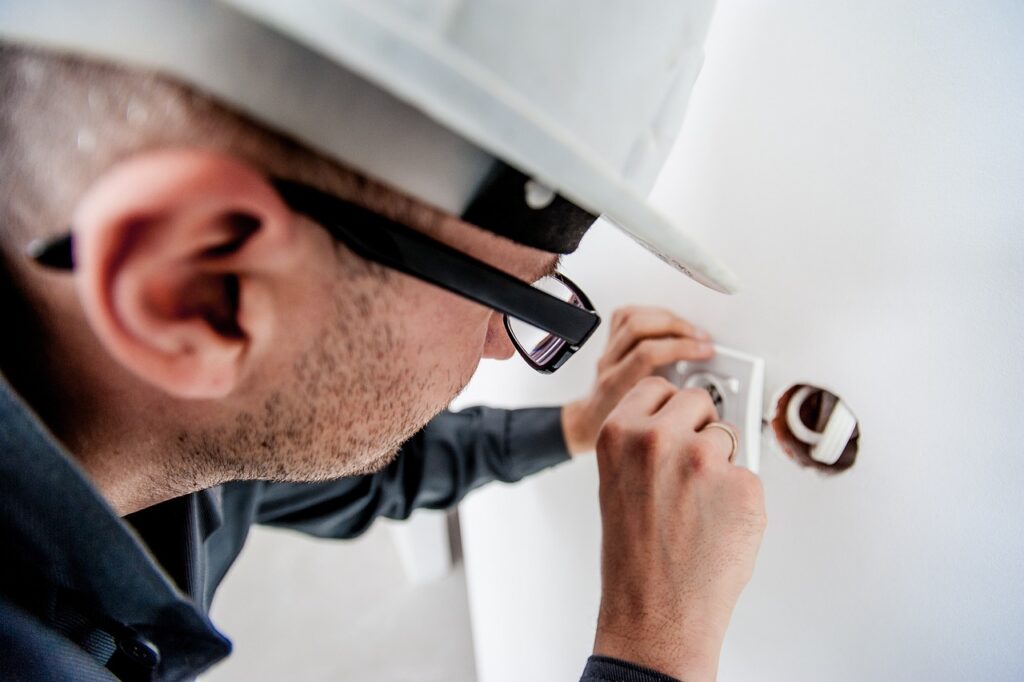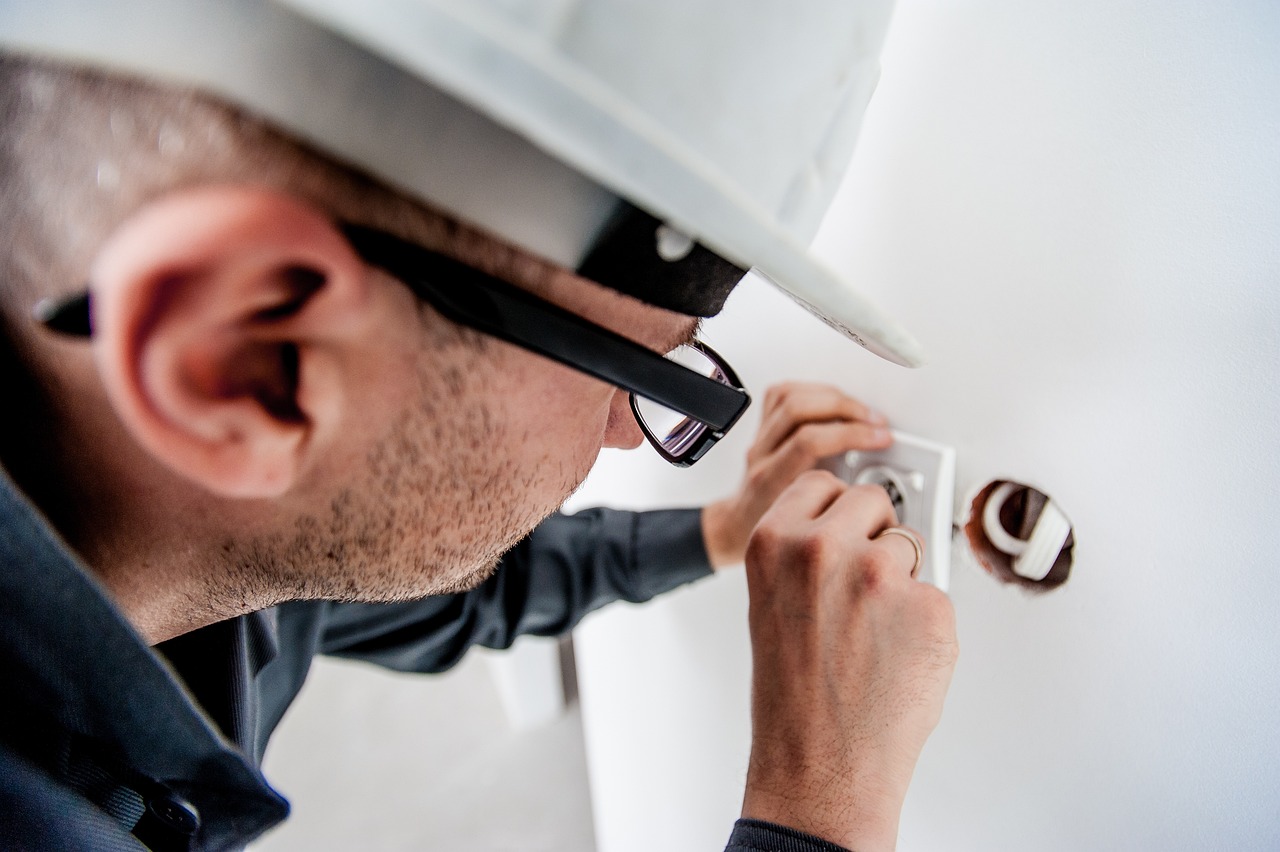Are you planning on rewiring your home or business? While rewiring can improve the safety and efficiency of your electrical system, it can also be a risky process.
Electrical shocks, fires, and other emergencies can occur during the rewiring process, which is why it’s important to hire a professional electric contractor who knows how to handle these situations.
In this article, we’ll take a closer look at how electric contractors handle emergency situations during rewiring. From identifying potential hazards to responding to electrical shocks and fires, we’ll cover everything you need to know to ensure a safe and successful rewiring project.
So, whether you’re a homeowner or a business owner, read on to learn more about how to keep your property and your loved ones safe during the rewiring process.
Identifying Potential Emergency Situations
You’ll need to keep an eye out for any potential emergency situations while rewiring, so you don’t put yourself or others in danger. One of the most common emergency situations that electric contractors face during rewiring is electrocution. When working with live wires, there’s always a risk of getting shocked. That’s why it’s important to follow safety measures such as turning off the power supply and wearing protective gear like gloves and goggles.
Another potential emergency situation is fire. Faulty wiring can easily spark and ignite flammable materials like insulation or wood. To prevent this, electric contractors should make sure that all wires are properly insulated and secured. They should also have fire extinguishers on hand in case of emergency.
Being prepared for emergency response is key to minimizing potential damage and keeping everyone safe.
Taking Safety Precautions Before Starting the Rewiring Process
Before starting to rewire, make sure to take all necessary safety precautions to protect yourself and others. This includes conducting pre-requisite inspections to ensure that the area is safe and free from any potential hazards.
You should also wear protective gear such as gloves, safety glasses, and a hard hat to protect yourself from any electrical shocks or falls.
Before starting the rewiring process, it’s important to conduct a thorough inspection of the area. Look for any signs of damaged wires or faulty electrical connections that could pose a risk to you or others.
Additionally, make sure to wear protective gear at all times to minimize the risk of injury.
By taking these safety precautions, you can ensure that the rewiring process is completed safely and efficiently.
Responding to Electrical Shocks and Fires
If an electrical shock or fire occurs during the rewiring process, it’s important to remain calm and immediately cut off the power source to prevent further damage. This can be done by shutting off the breaker or unplugging the affected electrical device.
Once the power source is off, assess the situation and determine if first aid response is necessary. If a person has been electrocuted, call for emergency medical services right away. If you’re trained in first aid response, administer CPR or use an AED if necessary.
Electric contractors are trained in electrical safety and are knowledgeable about the proper procedures to follow in case of an emergency. It’s important to have electrical safety training before attempting any rewiring project.
Contractors should wear protective gear such as gloves and safety glasses when working with electricity. In addition, they should have fire extinguishers readily available in case of a fire.
By taking these precautions and being prepared for emergencies, electric contractors can ensure the safety of themselves and those around them during the rewiring process.
Addressing Outdated Electrical Systems and Faulty Wiring
Upgrading outdated electrical systems and repairing faulty wiring requires a trained professional with a thorough understanding of electrical safety procedures. As an electrical contractor, you must ensure that the electrical system is up to code compliance and meets the necessary safety standards. This is particularly important in emergency situations when the safety of the building occupants is at risk.
When rewiring an outdated electrical system, you must upgrade circuits and replace old wiring to ensure the safety of the building. This involves assessing the current system, identifying any hazards, and creating a plan to upgrade the system to meet the latest safety standards. As an electrical contractor, you must also ensure that the new wiring and components are correctly installed and tested to ensure that they are working correctly.

This attention to detail and commitment to safety is essential to prevent electrical fires and shocks, and to ensure that the building is safe for occupants.
Ensuring Safe and Efficient Completion of the Rewiring Project
Ensuring a safe and efficient completion of the rewiring project is crucial to protect the building and its occupants from potential hazards. As the electric contractor, you have the responsibility to assess the costs and provide accurate estimates to the client.
Once you start the project, you need to communicate regular updates to the client to ensure that they’re aware of the progress and any potential issues that may arise. During the rewiring project, you need to ensure that all safety protocols are followed.
This includes shutting down the power supply to the area where the work is being done, as well as wearing protective gear such as gloves and goggles. You also need to have proper tools and equipment to complete the job properly and efficiently.
By following these guidelines, you can ensure that the rewiring project is completed safely and on time, with minimal disruptions to the building’s occupants.
Frequently Asked Questions
How much does emergency rewiring typically cost?
Emergency rewiring costs vary depending on the extent of the damage and the repairs needed. Common causes of emergency rewiring needs include faulty wiring, overloaded circuits, and natural disasters. Safety is a top priority during emergency rewiring.
Can I do any rewiring work myself without calling an electric contractor?
You should never attempt DIY rewiring as it can be extremely dangerous and put you at risk of electrical shock or fire. Always call an electric contractor and follow safety measures for rewiring at home.
What kind of insurance coverage do electric contractors typically have for emergency situations?
If you hire an electric contractor, they should have insurance coverage for emergency situations. This can help cover the cost of any accidents or damage that may occur during the rewiring process.
How long does it usually take to complete an emergency rewiring project?
When choosing an electric contractor for emergency rewiring, consider their experience and qualifications. Emergency rewiring precautions include identifying common hazards to avoid, such as exposed wires. The project’s duration depends on the complexity of the job.
Are there any government regulations or requirements for electric contractors to handle emergency situations?
If you’re an electric contractor handling emergency situations, you must ensure that you comply with government regulations and safety measures. These requirements are in place to protect you, your team, and your clients.
Conclusion
In conclusion, as a homeowner, it’s important to be aware of potential emergency situations that may arise during a rewiring project. However, you can rest easy knowing that electric contractors are trained to handle these situations with expertise and care.
They take safety precautions before starting the rewiring process and are equipped to respond to electrical shocks and fires. Additionally, electric contractors are able to address outdated electrical systems and faulty wiring, ensuring that your home is not only safe but also up-to-date with the latest electrical standards.
With their expertise, you can be confident that your rewiring project will be completed safely and efficiently, giving you peace of mind and a home with a reliable electrical system.



